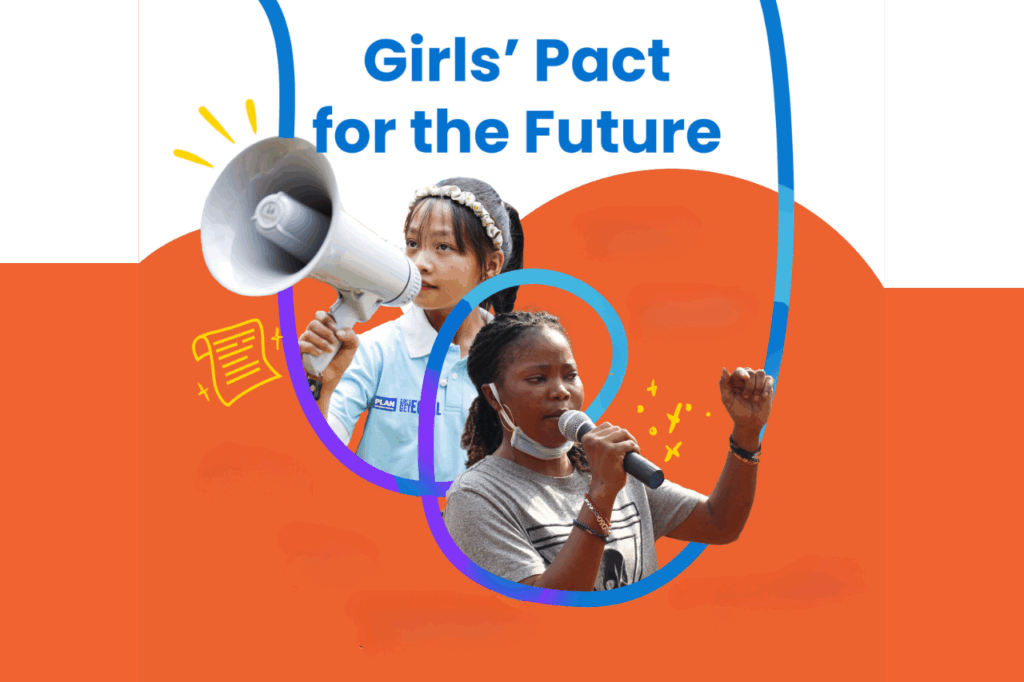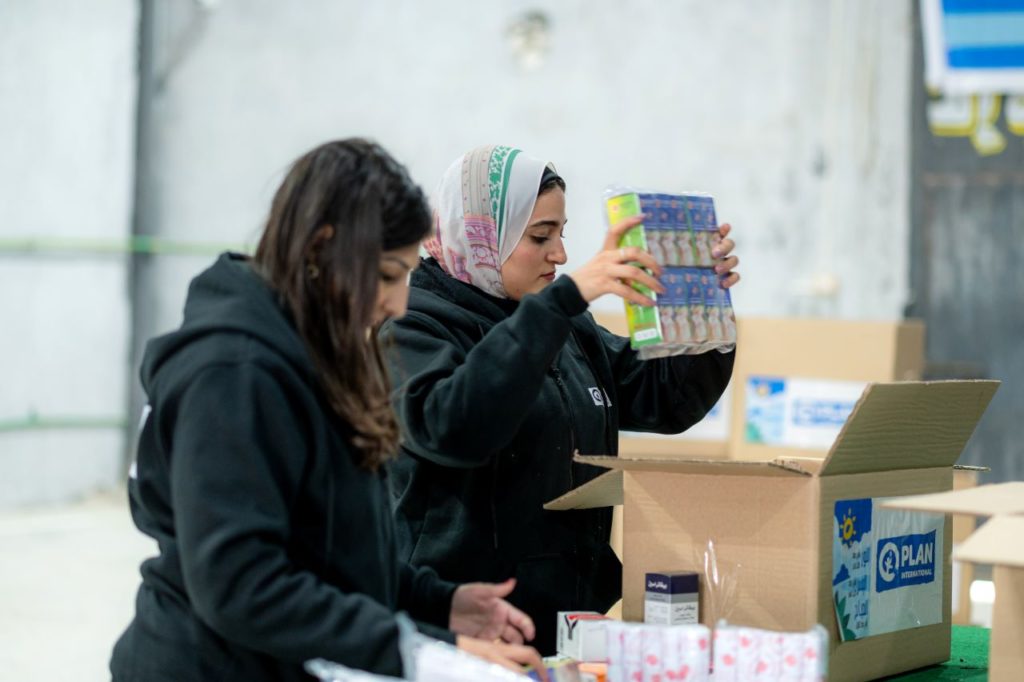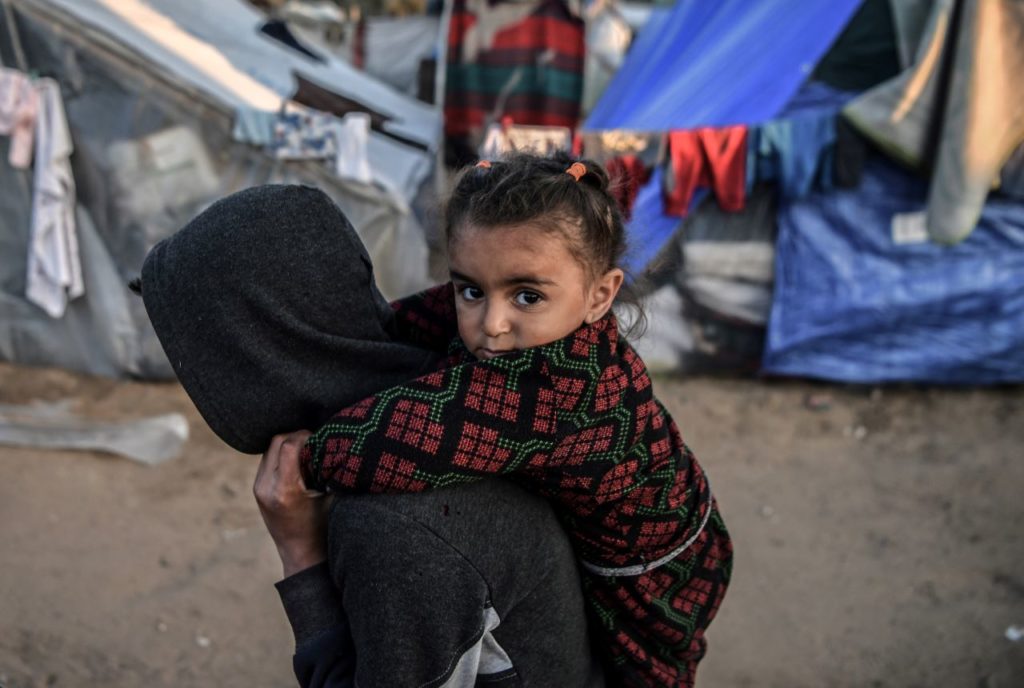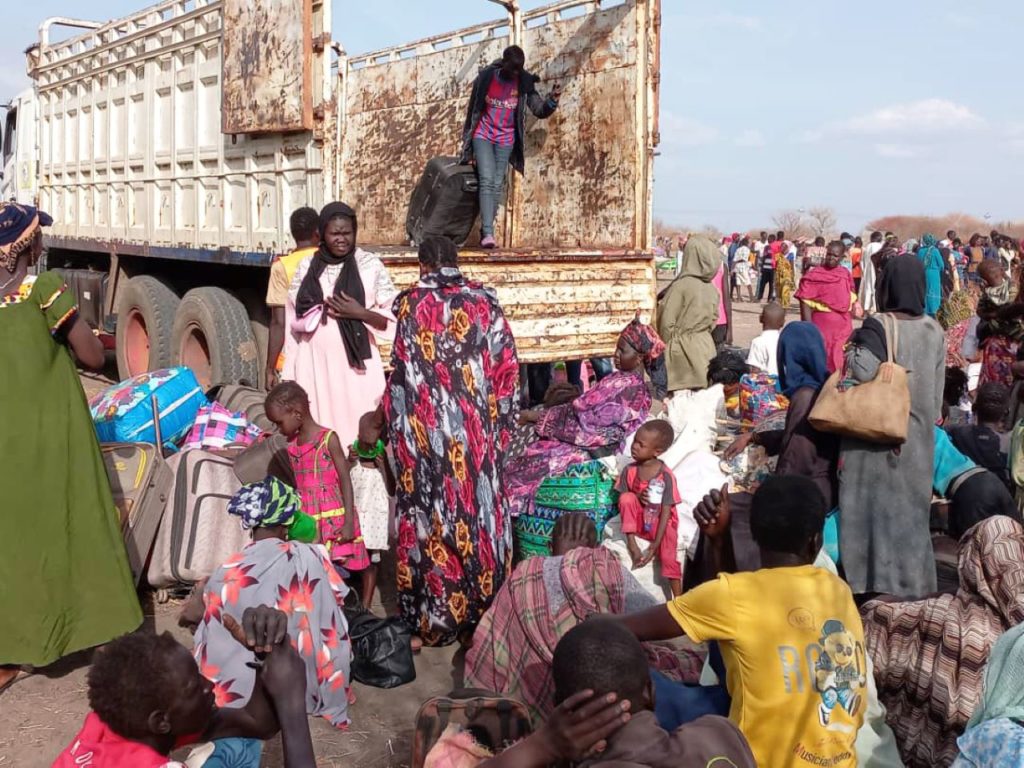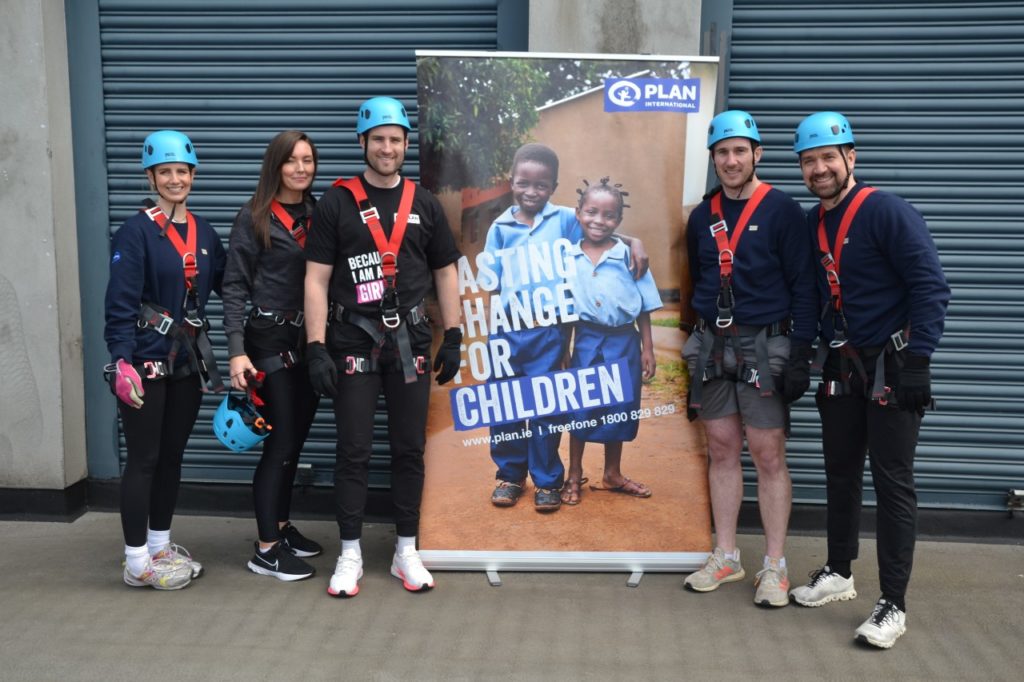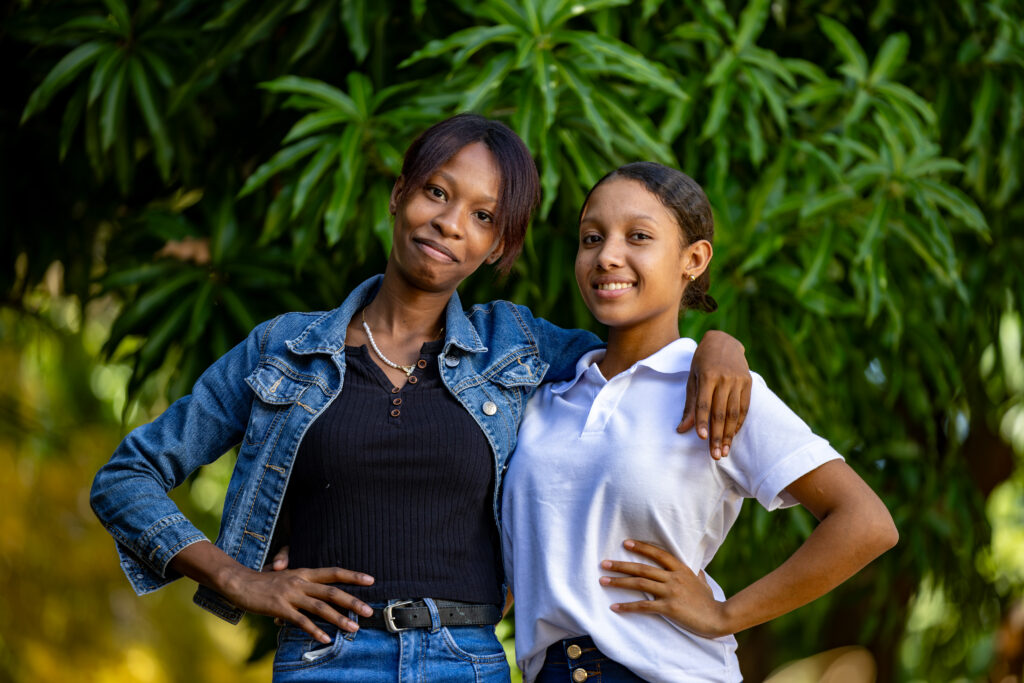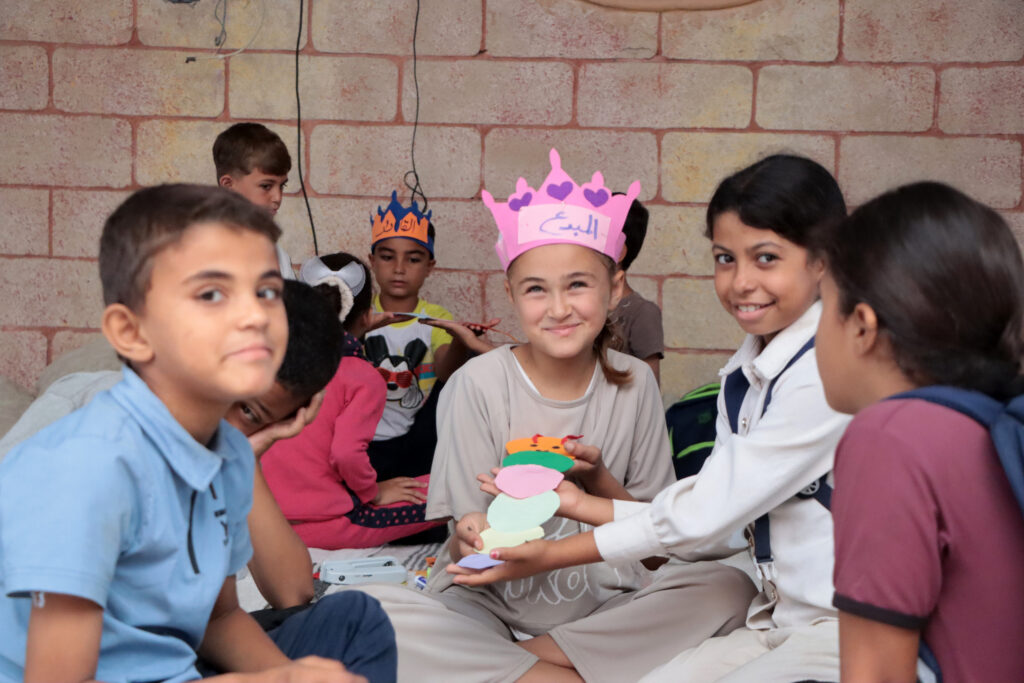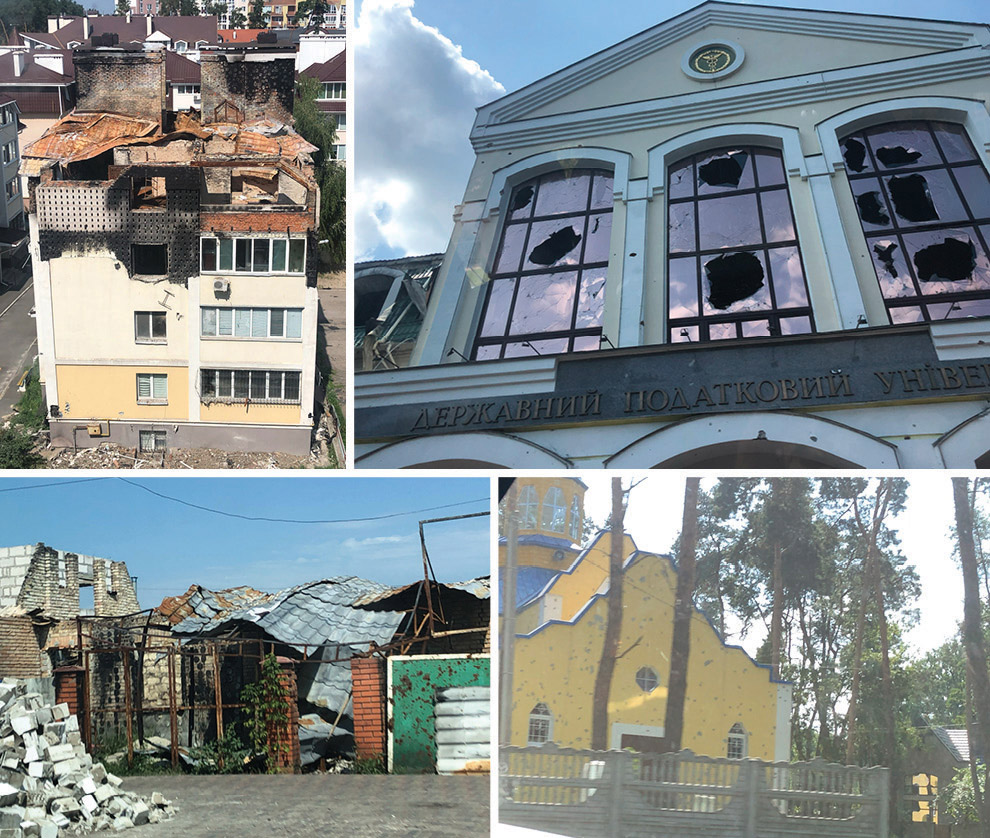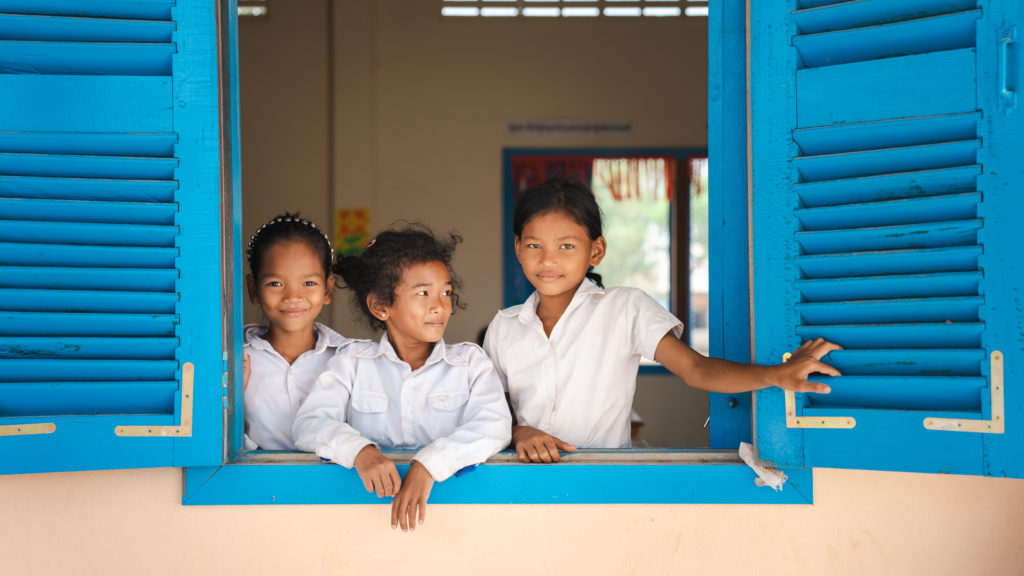In Borno State, a region devastated by insurgency and grappling with a severely damaged economy, women and children – girls in particular – are among the most affected.
15-year-old Lisa is one of the 11 million children in Nigeria forced to drop out of school, the majority of whom are girls. The third child of five siblings, she had been out of school for 3 years before she was supported to re-enter education. Lisa’s father works as a local security guard while her mother is a seamstress.
Lisa was forced to drop out of school at the age of 12 because of her family’s economic circumstances. The added difficulties presented by the COVID-19 pandemic made the situation even worse last year for Lisa and her family. She began supporting her mother at her tailor shop when she left school.
“I have had to cope with the constant humiliation, neglect and the scorn directed towards me from other children on their way to school,” says Lisa.
Support came Lisa’s way when Plan International embarked on a campaign to get children back to school under the European Union funded project Response, Resilience and Recovery in Borno State .
She was enrolled into Class 2 at the Bolori Junior Secondary School (JSS).
Lisa received dignity kits from Plan International which contained hygiene materials including sanitary pads, a tooth brush and toothpaste, and soap. This has helped prevent her from staying out of school due to her period. She also received important learning materials such as books, a mathematical set, a ruler, pens, and a school uniform.
Lisa’s school was also supported by the EU funded project with a block of newly constructed gender-segregated latrines to help girls to manage their periods in safety and dignity. Three blocks of classrooms were also renovated.
She and several other girls now have another chance at the future they deserve.
“I am very happy to be in school again and to be among my friends,” said Lisa. “I also want to thank Plan International and the donors, the European Union, for helping me with books, pads and other items.’
The Education Component of the EU funded Response, Resilience and Recovery in Borno State project has helped to instill hope into out-of-school children and brought smiles to the face of many families who continue to deal with the 11-year insurgency in the northeast region of Nigeria.
Maimuna is educating & empowering other girls in her school
Maimuna is a Girls Champion in her school and is also the Head Girl. Rodiat is Maimuna’s closest friend in school.
Since becoming a prefect, Maimuna has successfully helped to educate other girls on issues around menstrual hygiene management and healthy relationships with boys. She also takes the participation of other girls in school activities seriously, and wants them to be involved in debates, quizzes and sporting events.
The Vice Principal of the school, Hajiya, also ensures she takes issues of gender inclusion into account when running the school. She believes that “what a man can do, a woman is capable of doing better.”
According to Maimuna and Rodiat, coming to school when they had their periods used to be quite frightening due to fears of staining while in school.
Through the EU funded project, Support to Education in Borno State, Maimuna, Rodiat and many other girls now feel safe from bullying and mockery when they are on their period. They are now confident to come to school as their fears of embarrassment due to stains and poor menstrual hygiene management have been addressed through the distribution of dignity kits and the construction of gender segregated latrines on the school premises. They were also provided with additional learning materials.
